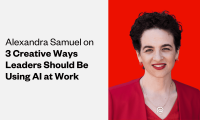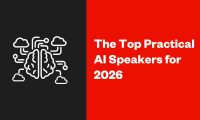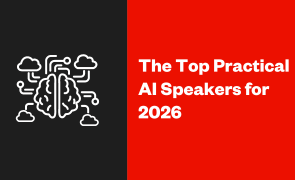“This may be the best book yet on what may be the best technology that has come along.” Lawrence H. Summers, former US treasury secretary on Ajay Agrawal’s highly anticipated book Prediction Machines—a crystal clear, realistic assessment of how AI will actually affect the economy. No hype, no speculation, just the tools and economic frameworks managers can use right now to understand what the AI revolution really means, from one of the subject’s leading, and most admired thinkers.
Agrawal is the founder of the University of Toronto’s Creative Destruction Lab, home to the greatest concentration of A.I.-enabled companies in any program on Earth. He’s also one of the most insightful—and accessible—speakers on artificial intelligence and machine learning. He teaches at U of T’s prestigious Rotman School of Management along with co-authors Joshua Gans and Avi Goldfarb.
Apple, Microsoft, Google, Wired—here’s what big names at some of the biggest companies in the world are saying about Prediction Machines (out April 17):
“AI may transform your life. And Prediction Machines will transform your understanding of AI. This is the best book yet on what may be the best technology that has come along.”
—Larry Summers, Harvard Professor and former US Treasury Secretary, former Chief Economist of the World Bank, and former president of Harvard University
“Prediction Machines is a must-read for business leaders, policymakers, economists, strategists, and anyone who wants to understand implications of AI on designing business strategies, decisions, and how AI will impact our society. Read this book and learn from the best!”
—Ruslan Salakhutdinov, Carnegie Mellon Professor and Director of AI Research at Apple >
“Prediction Machines achieves a feat as welcome as it is unique: a crisp, readable survey of where artificial intelligence is taking us separates hype from reality, while delivering a steady stream of fresh insights. The key is that the authors view AI’s life-changing developments through the lens of economics vs technology—and thus speak in a language top executives and policymakers will understand. Every leader needs to read this book.”
—Dominic Barton, Global Managing Partner, McKinsey & Company >
“Prediction Machines is a pathbreaking book that focuses on what strategists and managers really need to know about the AI revolution. Taking a grounded, realistic perspective on the technology, the book uses principles of economics and strategy to understand how firms, industries, and management will be transformed by AI.”
—Susan Athey, Stanford Professor and former Chief Economist at Microsoft >
“This book makes artificial intelligence easier to understand by recasting it as a new cheap commodity—
predictions. It’s a brilliant move. I found the book incredibly useful.”
—Kevin Kelly, Founding Executive Editor of WIRED and Author of What Technology Wants and The Inevitable
“This is the first book to explain the economics of artificial intelligence. It’s a must-read for every business person interested in this technology. I encounter so many people who feel excited but overwhelmed by AI. This book will ground those feeling lost by giving them a practical framework.”
—Shivon Zilis, OpenAI Director and Partner at Bloomberg Beta >
“The current AI revolution will likely result in abundance, but the process of getting there requires deliberation on tough topics that include increasing unemployment and income disparity. This book presents frameworks that allow decision makers to deeply understand the forces at play.”
—Vinod Khosla, Khosla Ventures and Founding CEO of Sun Microsystems >
“AI’s the most transformative technology of our era. Agrawal, Gans, and Goldfarb not only understand its essence, but also deliver deep insights into its economic implications and intrinsic trade-offs. If you want to clear the fog of AI hype and see clearly the core of AI’s challenges and opportunities for society, your first step should be to read this book.”
—Erik Brynjolfsson, MIT Professor and Author of The Second Machine Age and Machine Platform Crowd >
“What does artificial intelligence means for my business? Read this book and find out.”
—Hal Varian, Google’s chief economist















